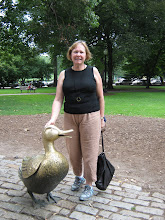Each year on January 29th, National Puzzle Day recognises how exercising our brains with puzzles is just one of its many benefits. Whether it’s a crossword, jigsaw, word searches, brain teasers or Sudoku, puzzles put our minds to work. Studies have found that when we work on a jigsaw puzzle, we use both sides of the brain. Spending time daily, working on puzzles improves memory, cognitive function, and problem-solving skills.
At lunchtime in the Library one of the activities I encourage the students to do as a cooperative group task is to do a jigsaw puzzle. Many students start but then give up long before they finish. I need to teach them to do the edges first and to keep the picture of the finished product handy so they know what they are aiming for. Ten years ago it was the most popular lunchtime activity and students would start quite hard puzzles and then slide them under the shelving to come back to tomorrow. That never happens now and it makes me sad. Even puzzles where you need to match pairs, dominoes, trionomos, building a 3D design using a picture and blocks or picking up fiddlesticks without touching other sticks send many of my students into a tizz. They just do not have the patience or perseverance to complete puzzles.
So this year, I will try again, offer more guidance, reduce the difficulty and hope that some students will get joy from the success of competing a puzzle like I do.
Even puzzle books where the reader has to find things in the illustrations or complete puzzles to advance to the next page are no longer popular. 797.73 books used to be up the top on the most borrowed book list, but now even Where's Wally? is only asked for infrequently.
Here's some books we do still have in the library that I could use as a display at the beginning of the year. There's ones that focus on mazes, spotting things...
All mysteries could be considered puzzles as you need to solve the mystery and this is a large genre, even for children. That is what made series like Jigsaw Jones, A-Z Mysteries and Encyclopedia Brown popular in the past, but they too are series that I cannot enthuse students to read anymore.
Here's some books that explicitly mention puzzles.
Monkey Puzzle by Julia Donaldson and Axel Scheffler
The 5,000 Year Old Puzzle by Claudia Logan & Melissa Sweet
Grandfather Tang's Story by Ann Tompert & Robert Andrew Parker
Name that Dinosaur: A Puzzle Adventure by Amelia Edwards
Around the World in 80 Puzzles by Aleksandra Artymoska
I'm inspired now to put out a display of puzzle books! I'll add some jigsaws. Will I extend it to include mysteries?


















No comments:
Post a Comment